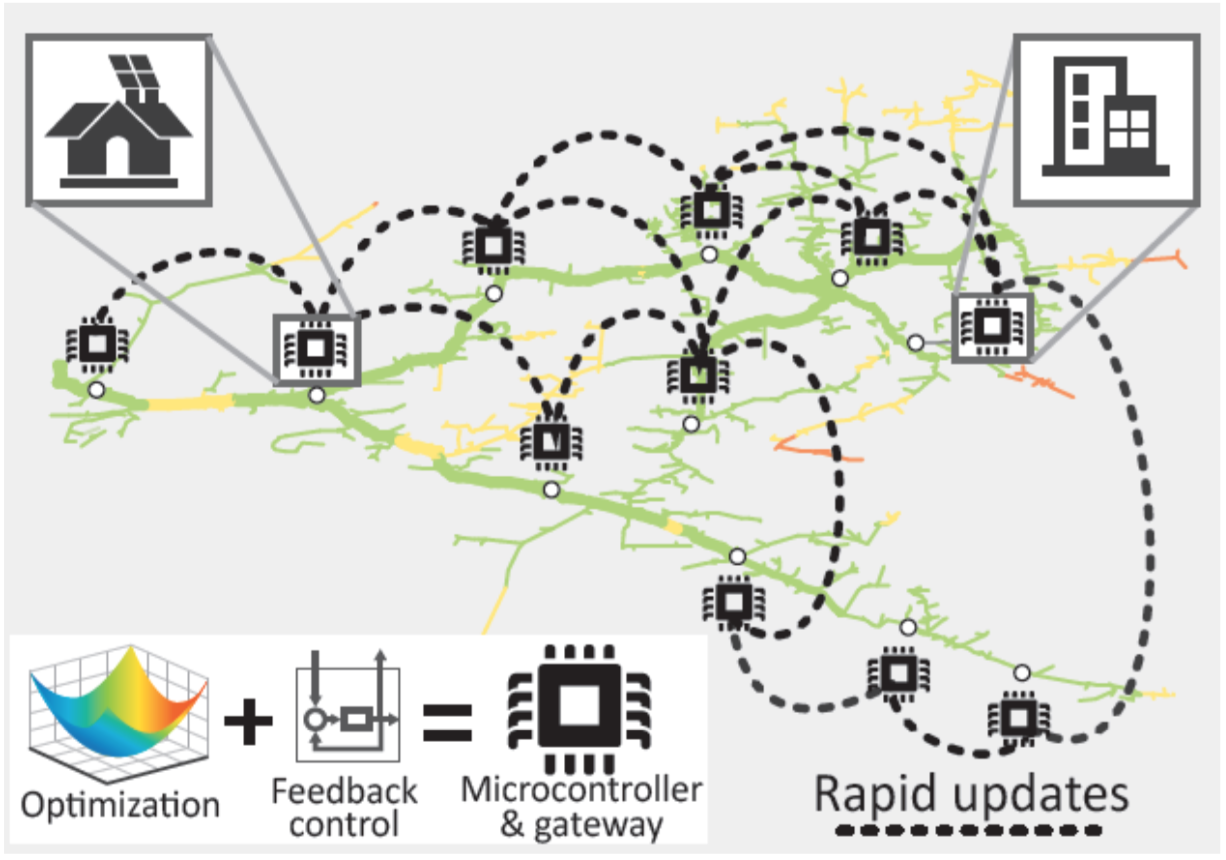Distributed inverter controllers seeking reliability and economic-optimality of photovoltaic-dominant distribution systems

DOE NREL, LDRD Program, 2015-2017
Goal: Develop innovative distributed controllers for efficient PV-inverters operation.
Abstract: Increased behind-the-meter photovoltaic (PV) capacity has precipitated a set of distribution-system-level challenges that impede the widespread adoption of PV systems. For example, reverse power flows due to PV-generation exceeding load demand increase the likelihood of voltages violating prescribed limits, while fast-variations in the PV-output tend to cause transients that ultimately lead to wear-out of legacy switchgear. Recent academic and industrial efforts have developed distributed optimization and control approaches to distribution-system management that are inspired by – and are adapted from – legacy methodologies and practices in bulk power systems; however, these approaches are not compatible with the form and function of distribution systems with high PV penetration, and therefore do not offer a way to systematically address emerging efficiency, reliability, and power-quality concerns. Accordingly, the objective of this project is to develop an innovative distributed PV-inverter control architecture that: 1) maximizes PV penetration while congruently optimizing system performance; 2) bridges the temporal gap between real-time control and steady-state optimization to enable unprecedented adaptability to fast-varying irradiation and load conditions; and, 3) seamlessly integrates control, algorithms, and communications systems to create the next-generation cyber-physical architecture that is required to support distribution-grid operations. While heuristics and various other methods proposed in the literature are not grounded on solid analytical foundations, the present project will develop distributed controllers with strong and universal theoretical claims regarding convergence, stability, and economic optimality. The proposed solutions will be validated using a comprehensive and tiered approach of software-only simulation and hardware-in-the-loop (HIL) simulation. Arduino boards will be utilized to create and embed the proposed optimization-centric controllers into next-generation gateways and inverters.